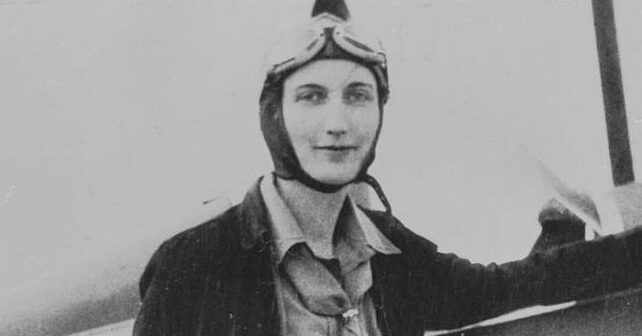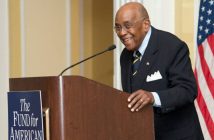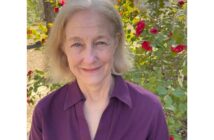Beryl Markham (October 26, 1902 – August 3, 1986) is perhaps best remembered as a pioneering aviatrix, becoming the first person to fly solo across the Atlantic nonstop from Britain to North America. She was also a racehorse trainer and had torrid love affairs and tepid marriages, all of which she recounted in her famed 1942 memoir, West with the Night.
Born Beryl Clutterbuck, she seemed at first destined to lead the kind of life described in old English novels – an uneventful childhood in a grand country house; schooling in literature, language, and sewing by a Jane Eyre-like governess; attending swish parties and tea dances until the day a handsome man from a fine family proposes, and that would be that. Then, having babies, supervising the staff, gardening, and fox hunting for the rest of her life.
But Fate had other ideas. Beryl spent her childhood in Kenya, and grew up to breed champion racehorses and pilot planes. Encouraged by Antoine de Saint Exupery, she wrote what would become a classic memoir about Africa, West with the Night. This book, Ernest Hemingway opined, was so good it made him feel ashamed because “she can write rings around all of us who consider ourselves writers.” As is well known, Hemingway was rarely complimentary towards fellow writers.
Early Life
Beryl’s father, Charles Clutterbuck, a former military man who struggled financially, sought his fortune in East Africa. He bought a thousand acres, mostly heavy bush and open pasture, in Kenya’s Rift Valley. In 1906, he moved his wife and two small children there from the Midlands. Beryl was then was three years old. Her mother, Clara Agnes Markham, lasted only eighteen months in Kenya before returning to England with their son, Beryl’s brother Richard.
Beryl and her father were left to their own devices. She later explained she was raised “in a world without walls,” as her father was busy running the farm and raising horses while she hunted and played with the tribesmen working on the farm — the Nandi, Kipsigis, Luo, Kikuyu, and Masai. She learned all of their languages, with Swahili becoming her first tongue.
Later, Beryl was sent to boarding school in Nairobi. After three years, she was expelled for being unruly and fomenting revolt among her fellow pupils. Her father read her the classics as she grew up, and she continued this habit into adulthood. This pastime would eventually serve her writing well.
By the age of eighteen, Beryl become the first woman to become a licensed horse trainer. Her reputation grew as her stock won more races, including the prestigious Kenya St. Leger. Women were still not licensed in England to train so she was a true pioneer.
Also at age eighteen, she married an older wealthy neighbor named Jock Purves. According to Mary Lovell, who wrote the excellent biography, Straight On Till Morning, the rumor was that her father married her off due to financial problems with the farm brought on by drought. Beryl never confirmed this. The loveless match lasted only two years.
By then, Beryl’s father had gone broke and moved to Peru to raise thoroughbreds. She was miserable with her husband, so she focused on her horses, socialized with the Happy Colony set of Nairobi (including Karen Blixen — better known by her pen name as the writer Isak Dinesen — and Denys Finch Hatton).
Learning to Fly, and a Royal Romance
At age twenty-four, she sought a divorce. By then she had started to fly, mentored by pilots like Finch Hatton. As Blixen’s love affair with Finch Hatton wound down, Beryl took up with him herself. Finch Hatton wasn’t the marrying kind, and eventually she married Mansfield Markham, an English aristocrat, by whose surname she became known.
Beryl Markham’s personal life grew ever more interesting; many find her life as thrilling as her writing. With her white-blonde hair, lithe build, and cover-girl good looks, paramours were easy to come by. She had an affair with Prince Henry, the Duke of Gloucester (the Prince of Wales brother), and the wags claimed he was the father of her son, Gervase.
When word got around, Henry was forced to end the romance, and Beryl was given a small annuity for the rest of her life. This was fortuitous; like her father, she was terrible with money. Marriage wasn’t her strong suit, either. Her marriage to Mansfield Markham failed, exacerbated by rumors of her liaison with the Duke.
Beryl needed to find a way to make a living. She obtained a pilot’s license and spent the next several years, from 1931 to 1936, delivering mail, ferrying passengers, and scouting elephants for safaris all over Sudan, Kenya, Tanzania, and Zimbabwe. Many of these flights are the basis of stories in West with the Night.
Relationship with Denys Finch Hatton
Beryl met Denys Finch Hatton when she was about eighteen, and became a friend of both his Karen Blixen’s; they later ran in the same social circles. Blixen and Hatton were together about six years, however, Blixen was very possessive and wanted to get married. Finch Hatton wasn’t the marrying kind, and over time, this caused a terrible rift between them.
As the relationship continued to deteriorate, Finch Hatton moved out of Blixen’s farm to the Muthaiga Club in Nairobi, where Beryl Markham also happened to be staying after returning from England. Her affair with Prince Henry had come to an end — at the Queen’s insistence. But Beryl and Finch Hatton’s affair had started before this, and they were very well suited. She considered him, according to biographer Mary Lovell, a mentor, brother, lover, friend; in her eyes, as Lovell says, she was the only man who could shore up against her father.
Finch Hatton helped Markham in many ways; he inspired her to read the classics, learn how to educate herself, and enjoy life. He also helped her with her flying. The affair ended when he invited her to fly to the coast and visit his house. Her aviation teacher had a premonition and asked her not to make that trip, confident that she was close to being able to go solo.
Beryl she stayed behind. A few days later, Finch Hatton and his servant were killed upon take-off in a fiery crash. His death came at the height of their romance, so what would have happened next, we can only speculate.
From “Birth of a Life,” a chapter in West with the Night where Markham writes about learning to fly and her friendship with Denys Finch Hatton:
“Denys was a keystone in an arch whose other stones were other lives. If a keystone trembles, the arch will carry the warning along its entire curve, then, if the keystone is crushed, the arch will fall, leaving its lesser stones heaped close together, though for a while without design. Denys’ death left some lives without design, but they were rebuilt again, as lives and stones are, into other patterns.”
He had been one of her early mentors for flying and she went on to great, courageous accomplishments in aviation. Finch Hatton had been instrumental in helping her to believe in herself.
A Pioneering Aviatrix, and West with the Night
In 1936, Markham became the first woman to travel across the Atlantic, east to west, and the first pilot to fly from England to North America. Her plane, The Messenger, was supposed to land in New York, but after 21 hours and 25 minutes, she crash-landed in Nova Scotia, miraculously surviving with only a gash to the forehead.At first it was assumed that her plane had run out of fuel, though what actually happened was that the gas line had frozen.
Beryl Markham became an international star overnight, prompting her to begin writing West with the Night. Published in 1942, the book spent many weeks on The New York Times bestseller list as Number #1. These two glowing reviews were typical of the book’s reception:
“When a book like Beryl Markham’s West with the Night comes along it leaves a reviewer very humble. Words of praise used for other works seem trite and thin. For West with the Night is more than an autobiography; it is a poet’s feeling for her land; an adventurer’s response to life; a philosopher’s evaluation of human beings and human destinies.” (Rose Field, Books, July 5, 1942)
“Beryl Markham does more than tell of Africa. With admirable modesty, she offers us a thrilling as well as appealing saga of a very valiant and very human woman, philosophically pitting her skill, bolstered by limitless faith in herself, against relentless Nature in all her multifarious disguises, in the dank jungles, the desert wastes, and the boundless skies.” (Linton Wells, Saturday Review of Literature, June 27, 1942)
Fame and fortune came her way, followed by a return to love, when she met the charming Raoul Schumacher in Los Angeles. Their meeting was a coup de foudre. The couple moved from New York to New Mexico then back to California, smitten, writing together, and married.
When the U.S. entered World War II, West with the Night practically vanished. The public was no longer interested in reading odes to Africa and Beryl’s adventures. She received royalties for a few years, providing a small income, and eventually, the book went out of print.
Beryl’s husband, Raoul Schumacher, claimed to be a Hollywood writer, biographer Lovell found no listings of employment at the studios. He also claimed to be a ghostwriter, but there’s no evidence of this, either. To his credit, he was an excellent editor. He and Beryl began collaborating on short stories, published under her name in magazines like The Saturday Evening Post and Cosmopolitan. Eventually, Lovell compiled the stories in the collection The Splendid Outcast.
The pay for the short fiction was generous, so the couple, still madly in love, kept writing and throwing marvelous parties. However, Schumacher’s drinking got out of hand, and eventually, this marriage, too, was doomed to fail. By 1948, Markham moved back to Kenya to train racehorses and seek a divorce.
Rumors she had not written West with the Night began to surface, and dogged her for decades. The gossip was brutal — particularly the claim Markham was nearly illiterate and couldn’t have written such a book. Contrary to this absurd claim, anyone who is illiterate couldn’t possibly earn a commercial pilot’s license, nor speak five languages. Markham had many mentors, including her father as well as Denys Finch Hatton, who encouraged her to educate herself.
A Biographer’s Perspective
Mary Lovells’ biographies are objective, though she set out to destroy her subjects. After all, they’re usually no longer alive to defend themselves. Lovell sets out to tell a tale based on fact, not smash our idols forevermore; the reader has at least a modicum of respect for the subject.
Beryl was indeed a lousy mother — her son Gervase was raised by her mother-in-law for the most part — and she had many liaisons. She also blurred her vignettes sometimes and may have exaggerated— though this is poetic license most writers take advantage of to craft a compelling narrative.
After much research, Lovell was convinced that Beryl was the true author of West with the Night, and Schumacher helped with editing (for which Markham later thanked him for in her acknowledgments). Lovell writes that there are even surviving manuscript pages with his edits. and most of the book was written when Beryl was staying in the Bahamas, later sending large parts of the manuscript to her publisher in New York; Schumacher never visited his wife in the Bahamas. Nevertheless, Schumacher was broken by his problems and the divorce, so he and his friends may have started the hearsay.
Rediscovery of West with the Night
West with the Night remained out of print until 1983 when fate intervened. By then, Beryl was back in Kenya living off a small trust fund funded by the royal family. At Christmas, according to Lovell, a stranger had written her with an interesting story. The letter writer, George Gutekunst, a restaurateur from California, had been fishing with Ernest Hemingway’s son Jack, who encouraged him to read his father’s letters (“They’re very revealing.”). When he did, he noticed Hemingway’s comment to his editor Maxwell Perkins about Beryl Markham and West with the Night.
Intrigued, Gutekunst was able to find one lonely copy of West with the Night in a library and read the book in one sitting. Astounded, he immediately read it again, believing he had rediscovered literary gold. He showed the book to Evan Connell, the author of Mrs. Bridge; they sent it to North Point Press. West with the Night was reissued to great acclaim and the grapevine about authorship was reignite. Lovell’s Straight On Till Morning, published in 1987, has put all the rumors to rest.
The chapters in West with the Night could each stand on their own as short stories. The prose is elegant (perhaps Saint Exupery’s influence) and lovingly detailed. Passages are infused with haunting phantasmagoric beauty, bringing to life a world that no longer exists.
The publishers and editors at North Point Press secured the U.S. and British rights and the book was reissued in 1983. West with the Night was well received by the critics again, although talk re-emerged that Raoul Schumacher was the author — there was a Vanity Fair article written by one of Raoul’s friends claiming this.
The response to the reprint was thunderous. The first printing of her book had been 5,000 in 1983, a year later 9,100 whereas in 1986 North Print sold 15,000 quickly and had to reprint 100,000 more. Beryl Markham did receive the royalties due her.
What really helped the book was George Gutekunst (who had found out about her from Hemingway’s letters) also raised money for a documentary on her life from the likes of TV station KQED in San Francisco ; he also put up at least $20,000 of his own money. “World Without Walls” was aired in the Bay area in 1986.
Though Beryl died in Kenya in 1986, it’s likely that she saw the film because she cooperated with the material and got a lot of attention from reporters afterwards. Around the time of her death, there was an effort to make a movie version of West with the Night though that hadn’t come to fruition. In 1988 director Tony Richardson made a TV movie about her called “A Shadow on the Sun.”
Beryl Markham’s Legacy
For writers with interesting lives, stories can write themselves. Beryl Markham certainly had rich subject matter – being attacked by a lion as a child; saving a stranded pilot from the desert; the death of the love of her life Finch Hatton (on a flight she was supposed to take with him); the list is endless.
Adventurous, fearless, Beryl Markham shattered glass ceilings long before the term had been coined. To borrow from William Butler Yeats, she had a fascination with what is difficult, and she has bequeathed her memories and experiences in her fine book and stories to generations of readers.
The last word comes from the eponymous chapter “West with the Night”:
“You can live a lifetime and, at the end of it, know more about other people than you know about yourself. You learn to watch other people, but you never watch yourself because you strive against loneliness. If you read a book, or shuffle a deck of cards, or care for a dog, you are avoiding yourself. The abhorrence of loneliness is as natural as wanting to live at all. If it were otherwise, men would never have bothered to make an alphabet, nor to have fashioned words out of what were only animal sounds, nor to have crossed continents – each man to see what the other looked like.”
Image attribution: Tekniska museet, CC BY 2.0, via Wikimedia Commons
You can also read the full article by Tyler on the Literary Ladies Guide page.


